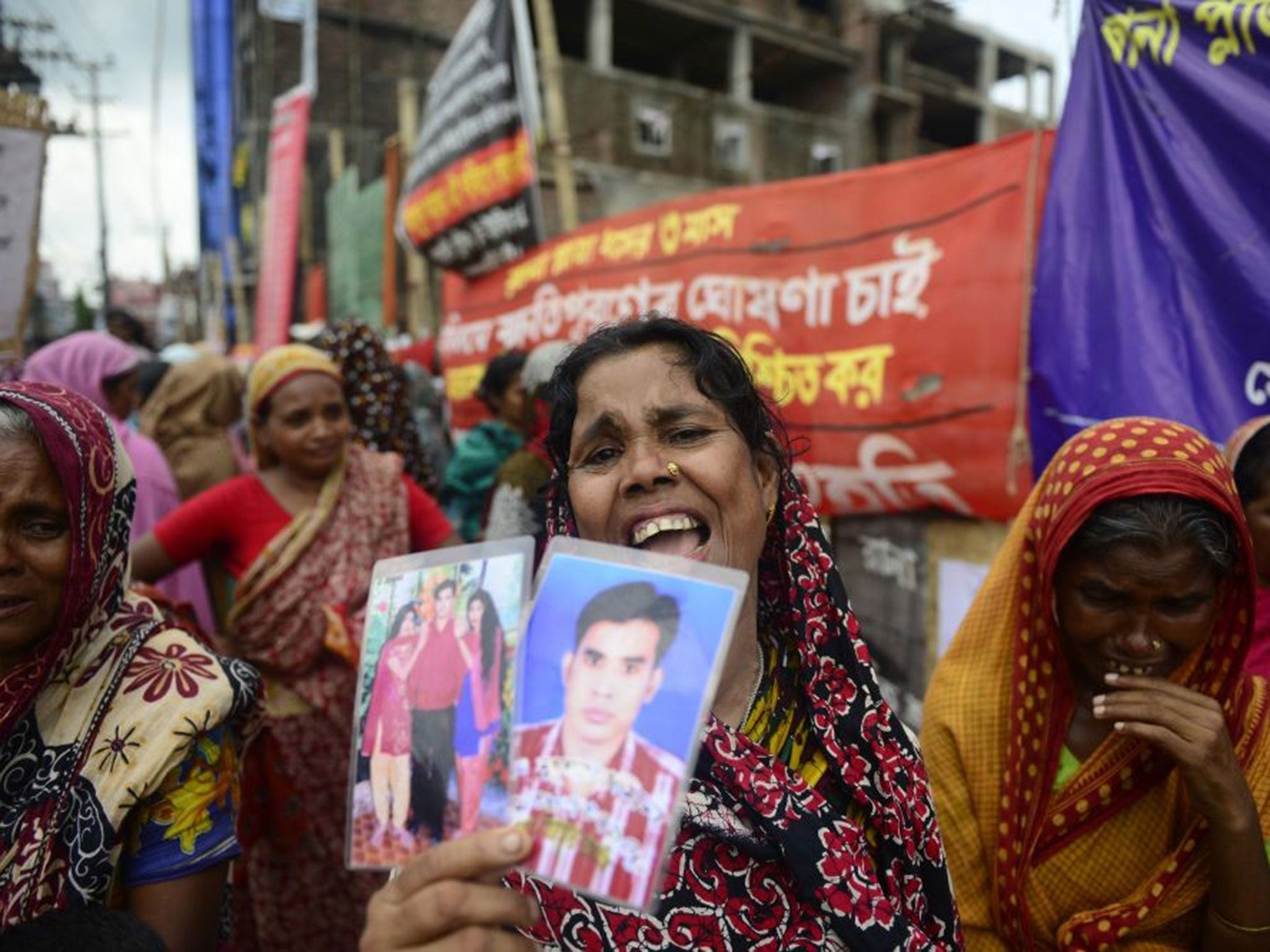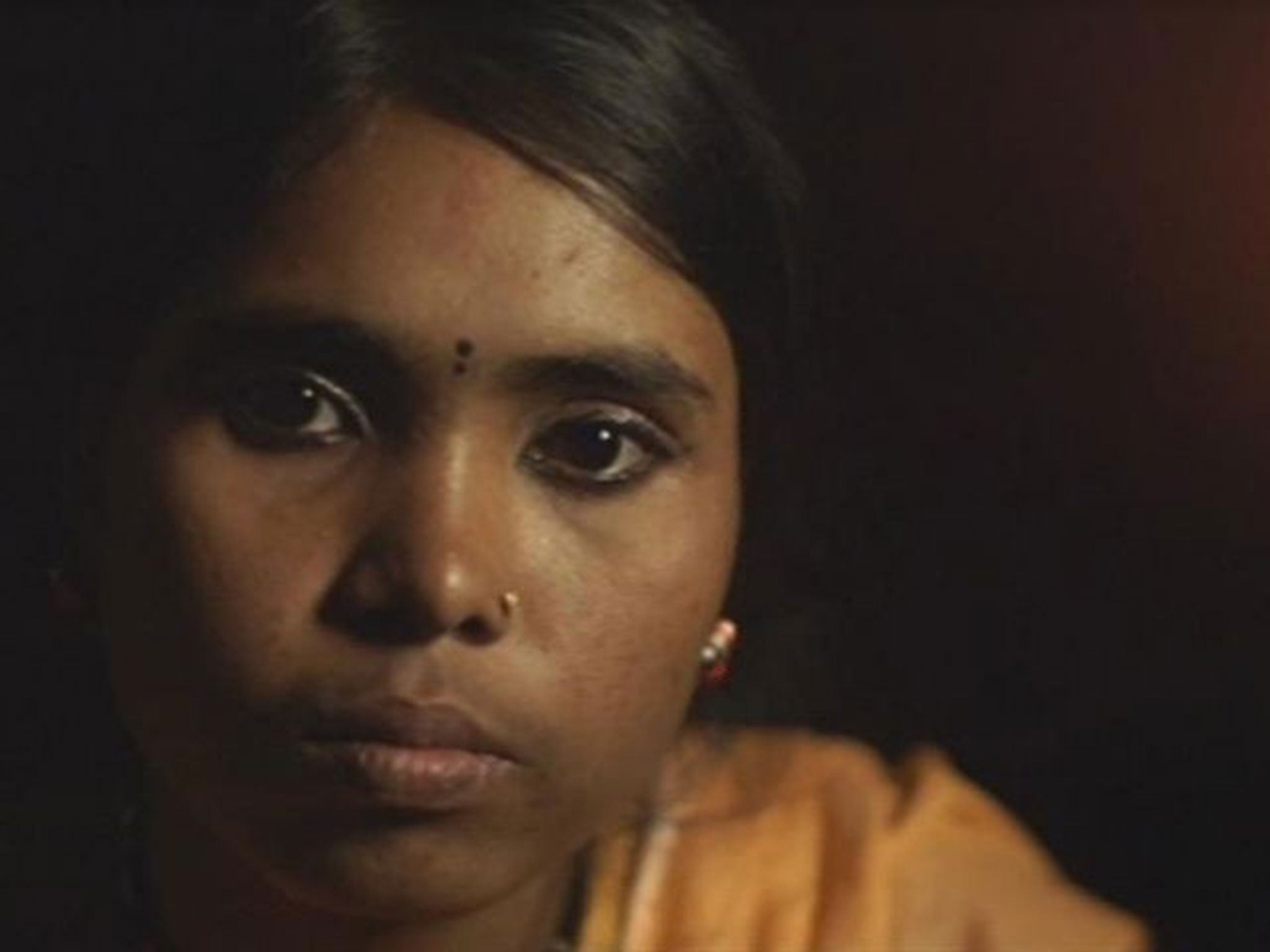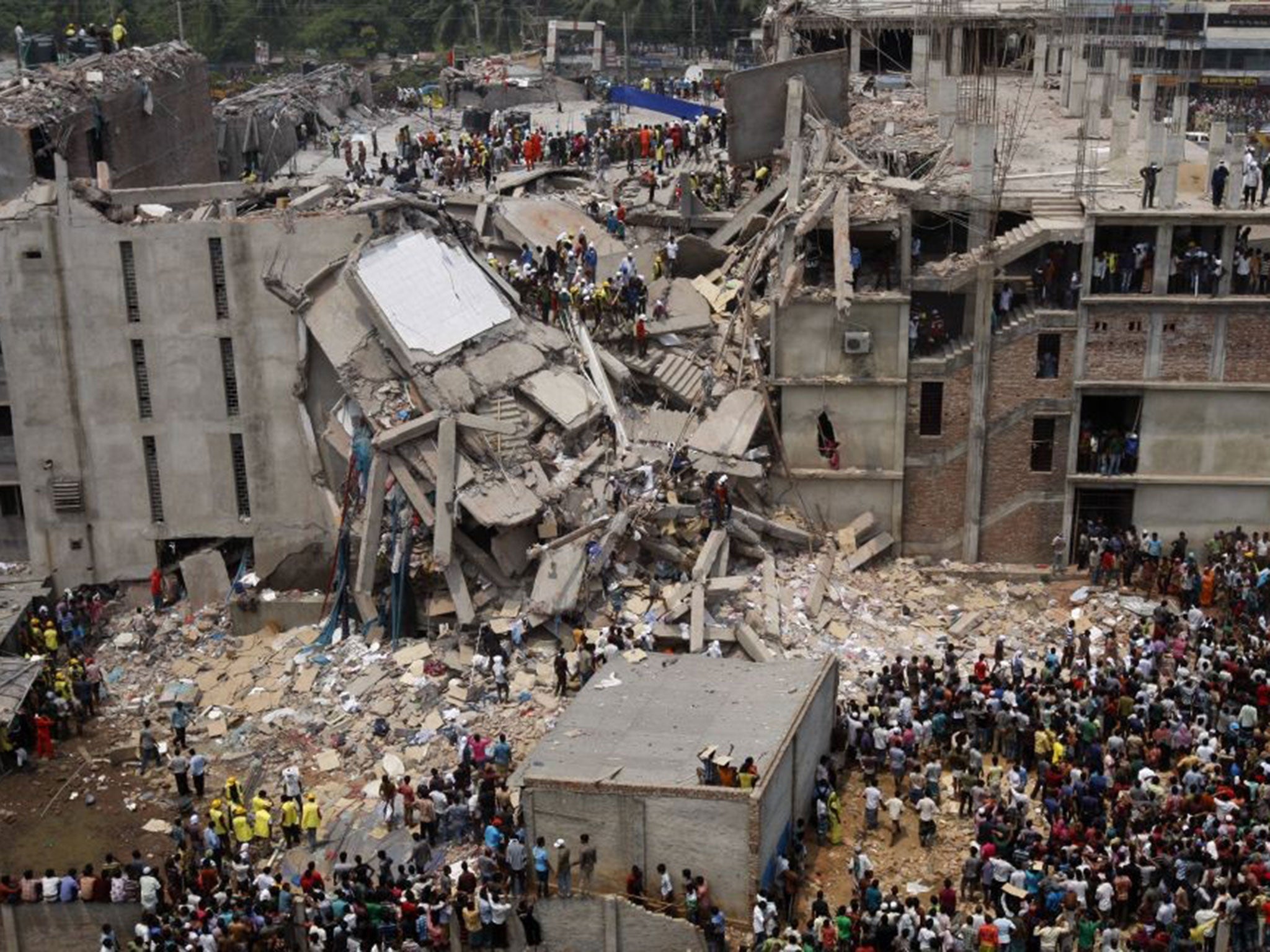The day the Rana Plaza garment workers died: New documentary tells the stories of those who survived the collapse of a clothing factory near Dhaka
It was one of the worst industrial disasters of modern times, killing more than 1,000 people

Your support helps us to tell the story
From reproductive rights to climate change to Big Tech, The Independent is on the ground when the story is developing. Whether it's investigating the financials of Elon Musk's pro-Trump PAC or producing our latest documentary, 'The A Word', which shines a light on the American women fighting for reproductive rights, we know how important it is to parse out the facts from the messaging.
At such a critical moment in US history, we need reporters on the ground. Your donation allows us to keep sending journalists to speak to both sides of the story.
The Independent is trusted by Americans across the entire political spectrum. And unlike many other quality news outlets, we choose not to lock Americans out of our reporting and analysis with paywalls. We believe quality journalism should be available to everyone, paid for by those who can afford it.
Your support makes all the difference.Trapped in darkness for days before eventually escaping the rubble, Rojina Begum was one of thousands injured in the worst industrial disaster of modern times – when the Rana Plaza clothing factory in Bangladesh collapsed.
More than 1,000 people died when the factory outside Dhaka, which made clothes for companies such as Matalan and Primark, fell down in April last year. A year on from the tragedy, Ms Begum is one of several survivors remembering their ordeal in a new documentary. Many are speaking about their experiences for the first time.
The disaster could have been avoided, with warnings of cracks in the building the day before ignored. Ms Begum said: "After I went inside I saw the rumour was true. There was a crack in the pillar and the rods had come out. There were cracks in the ceiling too. It could collapse any time. I told my sister, 'We made a mistake coming. Let's leave.'" They never got the chance.
"I stood there and screamed and as soon as I screamed I fell into darkness. I was calling my sister's name. Everyone was screaming. I was thinking, where is my sister?"
She remembers finding herself lying in a dark cramped space. "My arm was trapped under rods, beams, machines and tables. My head hurt and I was bleeding from my ear. Many of the people around me had died. Their blood rolled down my body."

Ms Begum eventually took drastic measures. "I never thought that I'd have to amputate my own arm. But I was forced to by the situation. The doctor tried to amputate it but couldn't reach. He said: 'I'm giving you a saw and you can do it yourself.' At first I said I can't. I had no strength. It was the start of the third day. He said: 'Give it a try.' I said, 'OK, give it to me' and I cut it. I had only one thing on my mind, to look for my sister. That's why I could do it."
The Rana Plaza building, which housed five factories making millions of garments for more than 20 foreign companies, symbolised Bangladesh's position as one of the world's biggest supplier of clothes – second only to China. Making clothes provides millions of jobs in a country where it accounts for almost 80 per cent of exports in a sector worth more than £15bn a year.
While the building's owner, Sohel Rana, has yet to be brought to trial, he is one of a number of individuals facing charges. Bangladesh's anti-corruption Commission filed charges last Wednesday against 18 people accused of having "grossly breached the building code" in allegedly adding extra floors without permission. The accused also include Mr Rana's parents, the local mayor, engineers and three owners of garment factories that used the building.

Another survivor, known only as Rebeka, said: "There were people cut in half and their intestines were tangled with my body. There were other people and corpses there. It cannot be explained in words. After a while, to quench their thirst, people took bites from their own flesh. Thinking about it makes me feel dizzy. Some people punctured their flesh and drank their blood. Some people drank their own urine. Whoever could not do this, they are not in this world. Whoever could, survived."
Video: Rescue scenes of the tragedy last year
Warnings of structural problems the day before the building collapsed were not heeded, with Sohel Rana saying: "This is not a crack. It's just a bit of plaster that's come off."
Dipu Asaduzzaman, a production manager, said: "Rana's people said, 'Go upstairs, nothing will happen. The building will stand for 100 years.'" He remembers the moment the factory fell down. "It was like the sound of a bomb going off." When he came to he found a wall on top of his legs. "When I looked up I saw the ceiling was six inches above me."
The manager was one of the lucky ones, being finally pulled to safety by rescue workers. "One guy came, a rescuer. He put some trousers under me. They dragged me out, using those trousers," he said. "My legs were fractured. I was in a lot of pain. I think of that moment sometimes. That's what I think of most."
After the tragedy, many overseas companies pledged to inspect the structures of the factories that make their clothes. The Bangladeshi government has doubled the minimum wage – although at about £40 a month it remains one of the world's lowest.
It is not just justice in the courts that the victims are waiting for. A compensation fund backed by the International Labour Organisation is less than halfway towards its £24m target. Last month, the then international development minister Alan Duncan confirmed he had written to British retailers, calling on them to contribute. "We have to raise the pressure over a year after the event to make sure a complete compensation package is assembled," he said.
But nothing will bring back Rojina Begum's sister Morjina. "I don't know what happened to my sister. We did not get her dead body. We found her grave later, from a DNA sample. I'd hoped to do a lot of things. What will I hope for now? I have only one hand. I can't do anything."
'Clothes to Die For' is on BBC2 tomorrow at 9pm
Join our commenting forum
Join thought-provoking conversations, follow other Independent readers and see their replies
Comments